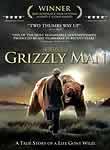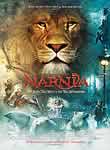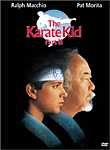Nine one-liners for December/January Movies
Days of Heaven - Malick takes a simple tragedy and undermines the story in favor of outstanding atmosphere through silence and a non-beginning non-ending series of innumerable shots.
Brokeback Mountain - Huzzah for enriching our definitions of human relationships and when people are walking out of the theater you know that shit is tight.
Forty Year Old Virgin - I think half this movie is improvised - by sleeper comics who do it better than any.
Melinda and Melinda - Will Farrell as Woody Allen is friggin' hilarious, but I start to wonder if Woody is contantly asking all his male actors to get a little woodier with it.
The Return - Incredible performances with haunting moments, but the pacing was a little sluggish.
Match Point - Not bad, but Woody often drags in non-comedies, and this is not exception, especially when he can't get away from the countless and mundane bourgeioise
Happy Endings - The "smart" movie of the 2000's: eschewed plot and the characters are supposed to have enough depth to carry us along for over an hour and a half ie. the inverse of Harry Potter "films."
Fitzcarraldo - Epic, hilarious, and somehow feeling like it's all teetering on disaster - I'm sensing a theme in Herzog.
King Kong - Stupider and stupider the more I think about it, but Andy Sirkus' death still burns my eyes and the scenes of Kong sliding on ice and killing stuff are almost redeeming - make me an editor!
Brokeback Mountain - Huzzah for enriching our definitions of human relationships and when people are walking out of the theater you know that shit is tight.
Forty Year Old Virgin - I think half this movie is improvised - by sleeper comics who do it better than any.
Melinda and Melinda - Will Farrell as Woody Allen is friggin' hilarious, but I start to wonder if Woody is contantly asking all his male actors to get a little woodier with it.
The Return - Incredible performances with haunting moments, but the pacing was a little sluggish.
Match Point - Not bad, but Woody often drags in non-comedies, and this is not exception, especially when he can't get away from the countless and mundane bourgeioise
Happy Endings - The "smart" movie of the 2000's: eschewed plot and the characters are supposed to have enough depth to carry us along for over an hour and a half ie. the inverse of Harry Potter "films."
Fitzcarraldo - Epic, hilarious, and somehow feeling like it's all teetering on disaster - I'm sensing a theme in Herzog.
King Kong - Stupider and stupider the more I think about it, but Andy Sirkus' death still burns my eyes and the scenes of Kong sliding on ice and killing stuff are almost redeeming - make me an editor!



